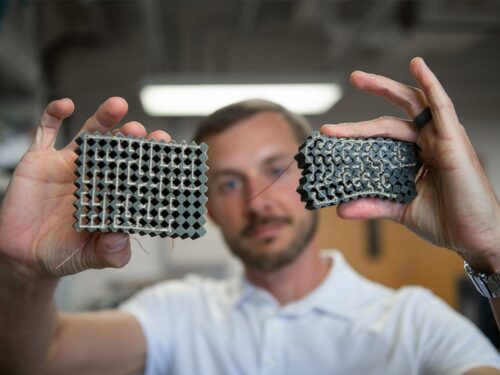Researchers have created a integrated circuit material that could ‘think’ under mechanical stress without additional circuits to process signals.

Ryan Harne and James F. Will, Career Development Associate Professor of Mechanical Engineering at Penn State have discovered a soft polymer material that can act on its own. The soft, conductive polymer material has reconfigurable circuits that can realize combinational logic. Then the material receives an external stimulus, it translates the input into electrical information. This information is then processed to create output signals.
The material can use mechanical force to compute complex arithmetic or to detect radio frequencies to communicate specific light signals. As these integrated circuits can be programmed or customized, these are expected to make a big difference in the future.
According to Harne, the material uses a ‘thinking’ process similar to that of the human brain. It has potential applications in infrastructure repair, autonomous search-and-rescue systems and also in bio-hybrid materials.
Human brain requires nerves to digitize the sensory information to transmit the electric signals to the brain. Then, the brain assesses this information and tells the body to react. Similarly, these materials should be capable of performing internal calculations to function the same way. When this material is subject to mechanical information, the applied external force deforms it. Then it digitizes the information to signals which can be assessed by its electrical network. The researchers are now working on evolving the material to process visual information like it does physical signals.
“We have created the first example of an engineering material that can simultaneously sense, think and act upon mechanical stress without requiring additional circuits to process such signals,” Harne said. “The soft polymer material acts like a brain that can receive digital strings of information that are then processed, resulting in new sequences of digital information that can control reactions.”







